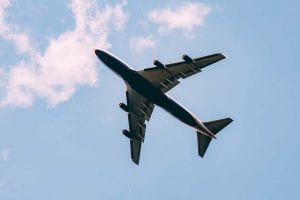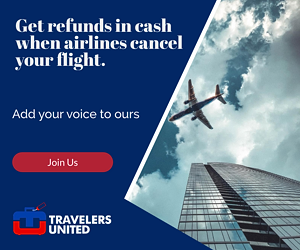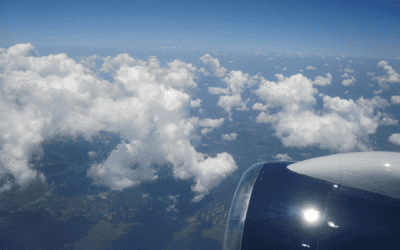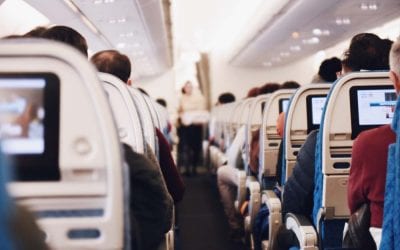Airline alliance improvements for business travelers often mean worse service for vacation fliers.
 You may have read stories about international airline alliance improvements for their passengers. However, the “improvements” are focused on business travelers. For non-alliance travelers attempting to save money, travel has gotten more complicated. Recently, luggage delays and flight cancellations have demonstrated that airline alliances are not ready for prime time. Hopefully, the coming summer season will allow airlines to reset and operate correctly.
You may have read stories about international airline alliance improvements for their passengers. However, the “improvements” are focused on business travelers. For non-alliance travelers attempting to save money, travel has gotten more complicated. Recently, luggage delays and flight cancellations have demonstrated that airline alliances are not ready for prime time. Hopefully, the coming summer season will allow airlines to reset and operate correctly.
Stopping the masses of tourist and coach passengers from saving money and not allowing them to connect and transfer luggage on flights outside the alliances has been successful. So, rather than operating a system for the general public, airlines have focused on creating mini-monopolies at alliance gateways. Airlines have discovered ways to squeeze travelers for more and more money when traveling internationally. The original airline alliance improvements envisioned when alliances were created have disappeared.
As airlines have found that business travelers have not returned, you would think that they would improve the leisure travelers’ lot. But they have not. Only the top tiers of frequent travelers are allowed into the airline lounges. If you pay the full fare, you get the benefits. Otherwise, you don’t.
According to the Wall Street Journal, “More crackdowns are coming in 2025 as airlines and credit card companies continue their never-ending quest to control crowds.” Flyers will examine their lounge access and usage.
International airline alliance improvements make travel better for business travelers, not leisure passengers looking for a deal.
Airline alliances today focus on business travelers collecting frequent flier points for status and the ability to share lounge access.
Now Star Alliance, Oneworld and SkyTeam say they are finally investing in technology that will make simple travel functions possible across their networks. Some baby-step changes have already happened, like the ability to use United’s app to get seat assignments on Singapore and Air Canada flights. Travelers may start seeing a lot more changes by the end of this year.
…
Travelers like how alliances let them earn and redeem their home airline’s frequent-flier miles on multiple carriers around the world. Other perks include shared lounge access and status recognition.
These airline alliance improvements for those looking for convenience over price and frequent flier status over the choice of airlines are for the 13 percent of fliers who pay full fare and use business class.
 The problem: Different IT systems do not work seamlessly together for business travelers
The problem: Different IT systems do not work seamlessly together for business travelers
Airline alliances have for years been touted as a beautiful saving for travelers. However, they have not delivered for business travelers regarding convenience or for coach travelers in overall savings. Business travelers cannot easily maintain their frequent flier (FF) programs, guarantee that they are getting the correct FF mileage on flights, or receive a single boarding pass for travel. The alliance computer systems cannot handle the complexity of these airline partners.
Coach travelers have been left in the dust and are getting less service and more problems.
Tourist-class travelers suffer while airlines work to build business traveler satisfaction.
Coach passengers are held captive by an oligopoly of three airline alliances: SkyTeam, Oneworld, and Star Alliance. Although the three alliances were allowed to grow, under the DOT, they used their power only to restrict travel choices for years, prop up high airfares, restrict capacity, and limit new routes.
Before the advent of airline alliances, interline agreements allowed airlines to transfer baggage from one airline to another. They also guaranteed the ability to fly on other airlines if their own airline could not get them to their destinations. Sadly, many of these interline agreements have been abandoned in favor of ways to squeeze more money from passengers.
Shrinking airline benefits for tourist-class travelers are part of airline alliance improvements.
The alliance benefits are few for hoi polloi travelers who are intent on saving money and choosing low-cost connecting flights.
- Passengers can no longer get a single boarding pass for flights across all alliance partners.
- Travelers can no longer check bags across alliance partner airlines. This means, for instance, baggage checked with Delta Air Lines cannot be transferred to Lufthansa or British Airways.
- Interline agreements for flight problems have been all but eliminated. No longer can many coach passengers be moved efficiently to their destinations on other competing airlines.
- Seat reservations are not possible across airline alliances.
- No alliance airline will transfer baggage to low-cost airlines.
- Families need to fight to get seats together. These battles take place during boarding.
The interline system is not broken. It is being dismantled to strengthen alliances.
The growth of airline alliances and their anti-competitive activities must be purged from our aviation marketplace. However, the Department of Transportation (DOT), which controls these monopolistic arrangements, seems unconcerned about the average traveler. Alliance rules can make flights cost more, not less.
Featured photo by Jordan Sanchez on Unsplash
READ ALSO:
Do you know the real benefits of early booking and possible problems?
The top critical choices you need to build your travel first aid kit

Charlie Leocha is the President of Travelers United. He has been working in Washington, DC, for the past 14 years with Congress, the Department of Transportation, and industry stakeholders on travel issues. He was the first consumer representative to the Advisory Committee for Aviation Consumer Protections appointed by the Secretary of Transportation from 2012 through 2018.




